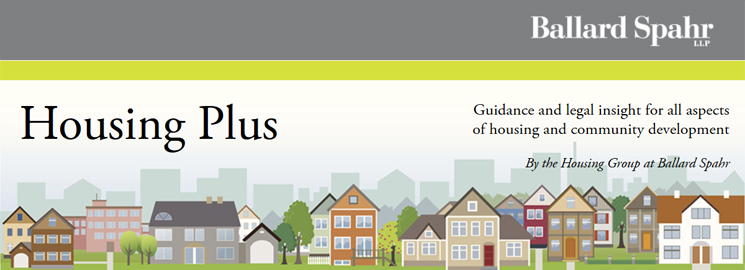
Please find below a memo issued last week by HUD’s Office of Recapitalization regarding the delayed submission of draft closing packages for RAD conversions. Please note that this gudiance applies to RCCs issued on or after May 1, 2018.
To: CHAP Awardees
From: Thomas R. Davis, Director, Office of Recapitalization
Date: April 27, 2018
Subject: Delayed Submission of Draft Closing Packages
This memo is to inform you of new guidelines for closing transactions after issuance of the RAD Conversion Commitment (RCC). Paragraph 2.c. of the RCC requires that the RAD transaction close “within 90 days from the date executed by HUD…unless [the RCC is] extended by HUD in writing.” When an RCC is issued, a RAD Closing Coordinator and HUD Counsel are assigned to review transaction documents and facilitate the approved closing. At RCC issuance, the transaction should be ready to begin the closing process. We have observed, however, that some teams do not submit their draft closing packages in a timely manner, unnecessarily diverting staff attention away from transactions that are ready to close. Significant delays in closing may also require that a transaction be returned to the underwriting phase for an updated HUD review and issuance of a new RCC. Recap is introducing a more standardized framework for processing transactions with a delayed submission of the draft closing package.
Recap expects a complete, generally acceptable, draft closing package to be submitted shortly after RCC issuance. When a closing package has not been received within two months of the date the RCC was executed by HUD, the transaction will be placed in “Delayed Submission” status. The transaction will be removed from the Closing Coordinator’s and Counsel’s workload so that HUD staff can concentrate on active RCCs. During the period when an RCC is in Delayed Submission status, the outside parties must direct questions by email to RecapClosingTeam@HUD.gov. This email address should also be used to notify HUD when a draft package is ready to be submitted.
After a transaction has been placed in “Delayed Submission” status, requests for extension of the RCC closing deadline will be reviewed more critically and, in the absence of evidence that the PHA is making progress towards closing the transaction, the RCC may be permitted to expire. Any expired RCC is returned to the Financing Plan review stage. Refreshing of any expired RCC involves, at a minimum, confirming or updating the Sources and Uses, the Pro-Forma, Financing Templates, relocation plans, and the Capital Needs Assessment (CNA). Please note that all CNAs, including updates after an RCC has expired, must be submitted in the e-CNA format. Expiration of the RCC and the requirement to update the underwriting does not affect the CHAP. Any changes to the CHAP or possible revocation of a CHAP will be handled separately by the Transaction Manager, consistent with Recap’s current practices.
The use of Delayed Submission status will begin with RCCs issued on or after May 1, 2018. If you have an RCC issued prior to May 1, contact your assigned Closing Coordinator to discuss your progress towards closing and/or possible RCC expiration.
Thanks,
RAD Resource Desk
www.radresource.net
email: resourcedesk@radresource.net